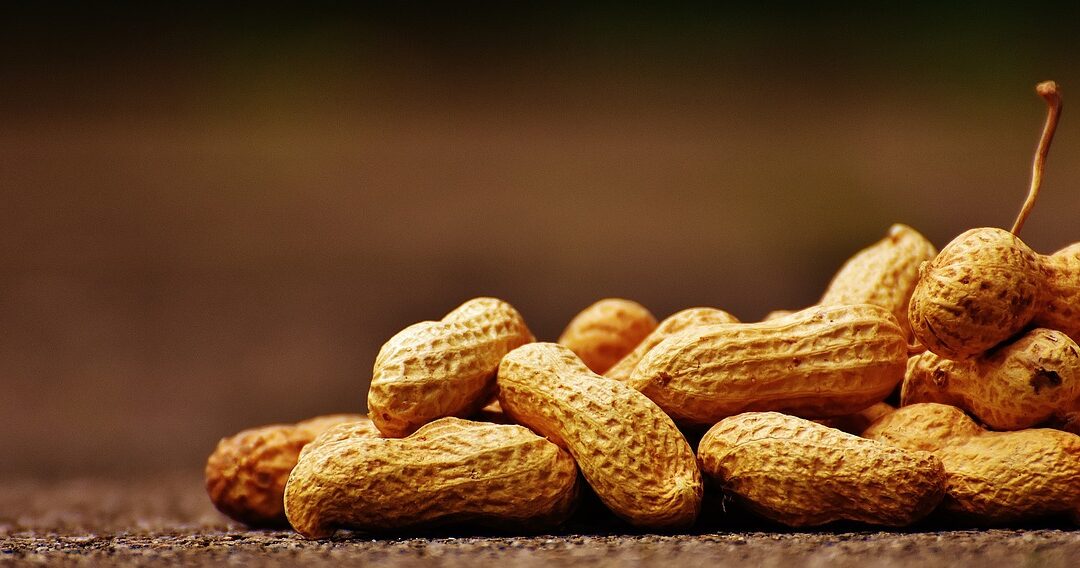Peanuts are a great source of fibre, numerous essential vitamins, and plant-based protein. There are numerous different ways to prepare peanuts, including roasted, salted, chocolate-covered, and peanut butter. Varying kinds have various health advantages and different nutritional profiles.
Peanuts have a healthy nutritional profile and a high-calorie content, making them most healthy when consumed in moderation. The nutrition facts for peanuts and their health advantages are all covered in this article.
// Here are the Best Nutrition Facts About Peanuts for 3.5 ounces (100 grams):
- Calories: 567
- Water: 7%
- Protein: 25.8 grams
- Carbs: 16.1 grams
- Sugar: 4.7 grams
- Fibre: 8.5 grams
- Fat: 49.2 grams
- Saturated: 6.28 grams
- Monounsaturated: 24.43 grams
- Polyunsaturated: 15.56 grams
- Omega-3: 0 grams
- Omega-6: 15.56 grams
- Trans: 0 grams
- Carbs | Nutrition Facts About Peanuts
With 4.6 grammes of carbohydrates per ounce, raw peanuts have a low glycemic index (GI) of 14.2. Compared to foods with a higher GI, such as white bread (which has a GI of 75) or a bowl of cornflakes, peanuts are less likely to raise your blood sugar levels (which has a GI of 81). About 2 grammes of the carbs in peanuts are derived from dietary fibre, while just over 1 gramme comes from natural sugars.

- Protein | Nutrition Facts About Peanuts
With 25.8 g of protein per 100 g, or around half of a person’s daily requirements, peanuts are a fantastic plant-based protein source. For adults, the recommended daily intake (RDA) for protein is 56 g for men and 46 g for women. Protein is necessary for the development and repair of bodily cells. Depending on a person’s age and degree of activity, different amounts of protein are necessary.
- Fat | Nutrition Facts About Peanuts
They are actually categorised as oilseeds. The production of peanut oil consumes a significant amount of the world’s harvest of peanuts (Arachis oil). Oleic and linoleic acids make up the majority of the mono- and polyunsaturated fat, which makes up the majority of the fat content, which ranges from 44-56%.
- Fibre |Nutrition Facts About Peanuts
A good source of dietary fibre is peanuts. They have 8.5 g per 100 g, which is around a quarter of the recommended daily intake for men and a third for women. A heart-healthy food is a fibre. According to the AHA, eating foods high in fibre lowers the risk of heart disease, stroke, obesity, and type 2 diabetes while also enhancing blood cholesterol levels.
- Calories | Nutrition Facts About Peanuts
161 calories are included in a single one-ounce serving of raw peanuts. The nutrition facts for peanuts with topping may alter, yet the number of calories may not differ noticeably. For instance, the USDA estimates that a single serving of honey-roasted peanuts contains 162 calories.
// Health Benefits of Peanuts | Nutrition Facts About Peanuts
Many individuals believe that true nuts, such cashews, almonds, or walnuts, have higher nutritional value than peanuts. But it’s also true that peanuts offer many of the same health benefits as the more expensive nuts, so they shouldn’t be discounted as part of a balanced diet.
- Supporting heart health | Nutrition Facts About Peanuts
Peanuts have more monounsaturated and polyunsaturated fats than unhealthy saturated fats. Peanuts are better for the heart since they contain less saturated fat than other types of fat. Consuming 46 g of peanuts or peanut butter per day may benefit diabetics’ hearts, claims Trusted Source.
- Controls Blood Sugar | Nutrition Facts About Peanuts
Even though almonds are known as a healthy snack, it turns out that peanuts have equal advantages for blood sugar regulation. The glycemic index of other meals ingested at the same time can be lowered by the natural fats in peanuts. Both fasting and post-meal blood sugar levels are controlled by peanuts (after a meal).
- Weight Loss | Nutrition Facts About Peanuts
By consuming foods strong in protein, you could feel satisfied on less calories. Additionally, peanuts are only second to almonds in terms of protein content among nuts. According to studies, eating a reasonable amount of peanuts will not cause weight gain for most people. In fact, eating peanuts might aid in weight loss.
- Could Reduce Risk of Gallstones | Nutrition Facts About Peanuts
Peanuts have positive impacts on blood cholesterol levels, which can affect how gallstones grow. Gallstones are clumps of fluid that form inside the gallbladder and become solid; they frequently contain undissolved cholesterol. Five times a week consumption of peanuts or peanut butter is linked to a 25% decrease in the gallbladder disease.
- Lower Inflammation | Nutrition Facts About Peanuts
Peanuts are a good source of fibre, which benefits your digestive system and lowers inflammation throughout your body.
- To prevent cancer | Nutrition Facts About Peanuts
Eating peanut butter may assist older individuals reduce their risk of getting gastric noncardia adenocarcinoma, a particular type of stomach cancer.
// Nutrition facts about peanut butter
Protein, fibre, good fats, a variety of vital vitamins and minerals, and healthy fats are all abundant in peanut butter. The finest diets include a lot of nutrient-rich meals to suit your nutritional needs, thus these Nutrition facts about peanut butter may help you lose weight.
- Calories: 188
- Total fat: 16 grams
- Saturated fat: 3 grams
- Carbs: 7 grams
- Fiber: 3 grams
- Protein: 8 grams
- Manganese: 29% of the Reference Daily Intake (RDI)
- Magnesium: 13% of the RDI
- Phosphorus: 10% of the RDI
- Potassium: 7% of the RDI
- Vitamin E: 10% of the RDI
- Vitamin B3 (niacin): 22% of the RDI
- Vitamin B6: 7% of the RDI
- Vitamin B9 (folate): 7% of the RDI
Roasted Peanuts Nutrition facts 100g
Although the calories in roasted peanuts are identical to those in raw peanuts, roasted peanut skins, such as those that are light-roasted or dark-roasted, are higher in dietary fibre and natural antioxidants.
The same study revealed that nutrition facts for roasted peanuts had significant levels of bioactives, plant compounds that have been discovered to have health advantages beyond vitamins and minerals. Antioxidants like polyphenols, a type of bioactivity, guard against heart disease, cancer, and stroke.
Nutrition facts for peanut oil
Below are the Nutrition facts for peanut oil:
- Calories: 119
- Fat: 14 grams
- Saturated fat: 2.3 grams
- Monounsaturated fat: 6.2 grams
- Polyunsaturated fat: 4.3 grams
- Vitamin E: 11% of the RDI
- Phytosterols: 27.9 mg
20% saturated fat, 50% monounsaturated fat (MUFA), and 30% polyunsaturated fat make up the fatty acid composition of peanut oil (PUFA).
Oleic acid, often known as omega-9, is the primary kind of monounsaturated fat present in peanut oil. Additionally, it has a lot of linoleic acid, an omega-6 fatty acid, and little palmitic acid, a saturated fat.

// Nutrition facts salted peanuts
The CDC states that eating too much salt can raise blood pressure and increase your risk of heart attack and stroke. Peanuts with salt are a low-calorie, low-sodium food.
A “low-sodium food” is one that has less than 140 mg of salt per serving, according to the FDA. This standard is met by the majority of salted, dry-roasted, raw, and oil-roasted peanut variants. All of it is surface salt.
Peanuts naturally contain extremely little sodium, and the majority of the sodium in salted peanuts comes from the surface salt, which might contaminate your fingers or the packaging. Nuts are not among the top five sources of salt in the diet. The top five dietary salt sources in the United States include breads and rolls, cold cut meats, soups, poultry, and pizza.




Trackbacks/Pingbacks